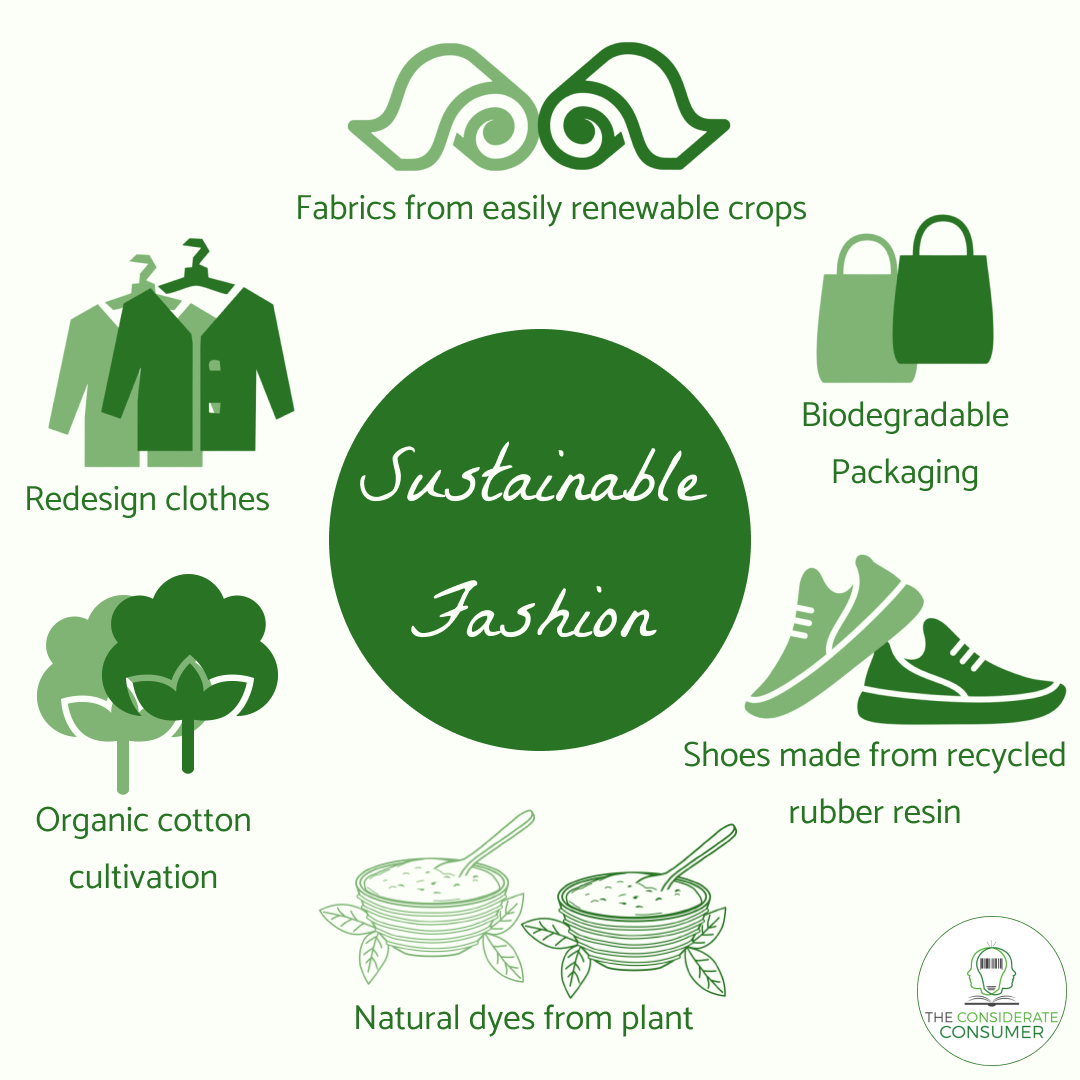Find Cape Town Sustainable Fashion Boutiques and Brands
Find Cape Town Sustainable Fashion Boutiques and Brands
Blog Article
Keep Ahead of the Curve by Exploring Ingenious Style Patterns
In a sector as vibrant as style, remaining in advance includes greater than just following present trends-- it requires an exploration of technology. Smart textiles, for example, are changing garments into useful work of arts, while 3D printing is changing design processes with its customizable, waste-reducing capacities. As sustainability ends up being a foundation, innovations like environmentally friendly products and round style methods are improving environmental duty - Cape Town Sustainable Fashion. In addition, the convergence of technology and style heralds a new period of consumer interaction. How, after that, can these emerging trends redefine the future of fashion, and what implications do they hold for brands looking for to prosper in this progressing landscape?

Accepting Smart Textiles
In the last few years, the apparel industry has actually witnessed a transformative shift with the integration of smart fabrics, a sophisticated advancement that mixes technology with textile. This development stands for not just a fusion of visual appeals and functionality yet additionally a considerable leap in the direction of sustainability and customization in vogue. Smart textiles, additionally called e-textiles, embed sophisticated electronic devices such as sensing units and conductive strings within the material, enabling garments to engage with the wearer or the environment.
These fabrics are made to keep track of physiological parameters, such as heart price or body temperature, supplying real-time health analytics. Beyond health applications, clever textiles are also being made use of for adaptive apparel, which can transform color or pattern in response to ecological stimuli, hence supplying a dynamic fashion experience.
Additionally, the growth of energy-harvesting fabrics that create power from motion or sunshine is leading the way for self-dependent wearable innovation. This innovation is appealing to ecologically aware customers and developers aiming to minimize the ecological footprint of fashion. As r & d in this area advancement, wise textiles are expected to end up being increasingly widespread, reshaping the landscape of contemporary style with their multifunctional capabilities.
The Increase of 3D Printing
Changing the production landscape, 3D printing has become a game-changer in the apparel industry. This advanced innovation has actually made it possible for designers to press the boundaries of imagination, producing complex and personalized garments that were previously unimaginable. By leveraging digital layout and additive manufacturing, 3D printing assists in the creation of complex geometries and patterns, permitting developers to trying out new textures and frameworks.
A significant advantage of 3D printing in vogue is its capability to create on-demand, lessening waste and decreasing supply demands. This effectiveness not just maximizes production processes yet also enables quick prototyping, allowing developers to bring their visions to life in a much shorter duration. Additionally, 3D printing supports modification to a degree unparalleled by typical techniques, providing special layouts and personalized fits tailored to private customer preferences.
The surge of 3D printing has likewise equalized fashion, making it accessible to emerging developers that can now fabricate high-grade items without significant economic investment in standard manufacturing framework. As technology remains to breakthrough, the fashion industry is positioned to harness the full possibility of 3D printing, exploring new materials and methods that will unquestionably redefine just how style is developed and created.
Sustainable Style Technologies
As the apparel industry grapples with the pressing demand for ecological responsibility, lasting style developments have actually arised at the leading edge of transformative modification. The expanding understanding of environmental influence has actually fueled a shift towards more eco-conscious practices and products. Brand names and developers are currently focusing on sustainability, integrating approaches that lessen waste and reduce carbon footprints.
One substantial advancement is the rise of round fashion, which emphasizes recycling and upcycling to prolong the lifecycle of garments. This technique not just reduces waste however additionally encourages customers to take on a much more mindful technique to clothes intake.
Another advancement depends on the fostering of cutting-edge dyeing techniques that use all-natural dyes or waterless processes, thus lowering the vast amounts of water and chemicals traditionally used in fabric dyeing. In addition, innovations in biotechnology have resulted in the production of lab-grown leather and materials, providing environmentally pleasant and cruelty-free options to conventional materials. Through these pioneering initiatives, the garment industry is making significant strides towards a much more sustainable future.

Tech-Integrated Garments
Tech-integrated clothing stands for an innovative fusion of style and innovation, reshaping exactly how people engage with their clothes. This ingenious domain is marked by the addition of smart fabrics and ingrained digital components, improving both functionality and aesthetic allure. From physical fitness trackers installed in sportswear to warmed jackets controlled using mobile phone apps, tech-integrated garments supplies consumers extraordinary ease and versatility.
Pioneering brand names are driving this pattern, concentrating on creating garments that react to ecological stimuli or user commands. As an example, some garments can change color or pattern in action to temperature level changes, while others include biometric sensors to check health metrics like heart rate or stress and anxiety degrees. The smooth integration of technology into fabrics additionally reaches environmental sustainability, with initiatives to create self-cleaning fabrics or garments that adapt to climate condition, therefore minimizing the need for numerous layers.
Furthermore, the arrival of wearable modern technology is not just restricted to clothing but reaches devices like watches and glasses, further expanding the range of tech-integrated fashion. As the market continues to innovate, go to the website the potential for modification and customization in site link garments expands, offering consumers unique, tech-enhanced fashion experiences that satisfy their specific needs and preferences.
Future of Virtual Style
Recently, the future of digital fashion has become a transformative pressure within the sector, leveraging improvements in digital modern technology to redefine exactly how style is developed, experienced, and taken in. By integrating increased fact (AR), online reality (VIRTUAL REALITY), and 3D style devices, designers can currently craft interactive and immersive experiences that transcend conventional fashion limits. Digital style enables for the creation of garments that exist only in electronic environments, supplying limitless opportunities for innovation without the limitations of physical production.
This electronic change not just presents chances for creative expression but also addresses sustainability worries fundamental in conventional style practices. Cape Town Sustainable Fashion. By getting rid of the requirement for physical sources, online fashion minimizes waste and decreases carbon impacts. Moreover, the rise of virtual fashion straightens with the enhancing customer demand for unique and personalized experiences, as online garments can be tailored and tailored to individual preferences easily

Final Thought
The apparel industry's future depend on the combination of sustainable techniques and cutting-edge innovations - Cape Town Sustainable Fashion. Smart fabrics and tech-integrated garments are improving functionality, while 3D printing supplies possibilities for personalization and waste decrease. Lasting style, via eco-friendly materials and circular techniques, shows a commitment to environmental stewardship. In addition, online style is poised to redefine customer communications. Adapting to these patterns is vital for brand names seeking to continue to be pertinent and affordable in this swiftly advancing landscape.
In current years, the style market has observed a transformative change with the combination of smart fabrics, an advanced innovation that blends innovation with textile.As the style sector grapples with the pressing demand for environmental responsibility, lasting fashion developments have actually arised at the center of transformative adjustment.In recent years, the future of online style has emerged as a transformative force within the market, leveraging improvements in digital innovation to redefine just how fashion is produced, experienced, and eaten. The increase of digital style aligns with the raising consumer need for unique and tailored experiences, as digital garments can be personalized and tailored to specific preferences with simplicity.
The style sector's future lies in the integration of cutting-edge innovations and lasting techniques.
Report this page